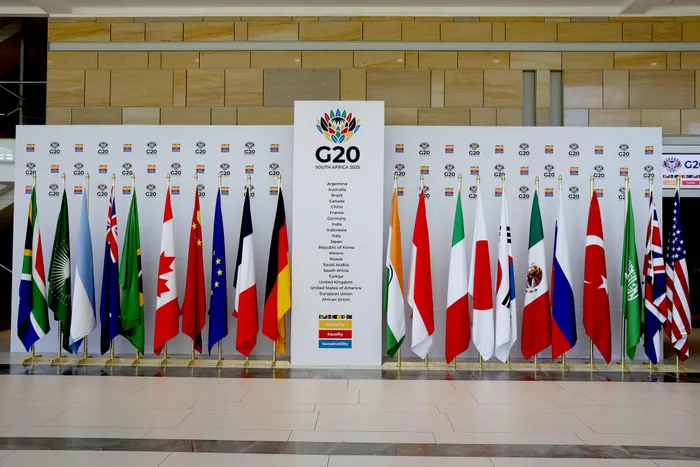'Petty politics' behind Trump's G20 boycott

Experts have warned that United States boycotting of the G20 Summit in Johannesburg may have serious implications for South Africa's participation in global agendas
Image: Supplied
Experts have sounded the alarm that US President Donald Trump’s decision to boycott the G20 Summit in Johannesburg may have serious implications for South Africa's participation in global agendas as it might be sidelined under the US's G20 presidency.
The US's decision to snub the summit is reportedly over allegations of white farmer persecution in South Africa, claims that have been widely rejected by the South African government and independent observers.
Last week, President Cyril Ramaphosa called the US decision to snub the summit "their loss," saying that "boycott politics doesn't work" and that the summit will proceed without the US.
However, experts believe that the US absence may have far-reaching ramifications, particularly on issues like reform, finance, and development.
Dr Nomvula Mphahlele, a researcher on SA foreign policy, said: “The US sponsors most of the international initiatives like climate change, they use a huge amount of money for the operation of the United Nations and other financial institutions like the World Trade Organisation. If the US is boycotting then it sends a strong message of the future of multilateralism and how the G20 is going to operate moving forward.”
She, however, noted that it is not yet clear whether the US is no longer interested in the collective efforts that are organised through the G20.
“It also has implications for those countries that are associated with the US. As you saw, Argentina is currently receiving financial support from the US, so obviously it has to be seen to be standing in solidarity with the US,” she said.
She said it is unlikely South Africa will lose its G20 seat given that a country’s inclusion is voted by members and not just by one person.
However, she said the US might continue excluding SA from certain activities, as invitations are often required to attend G20 meetings such as the finance minister’s meeting and the working groups.
“Maybe the US could exclude SA from some of these activities but it is not possible to remove them from their seat,” she said.
She also foresaw that the handover ceremony of the G20 presidency could be awkward for SA with the absence of the US as the successor.
Mphahlele suggested that Trump's presidency may prioritise US interests, potentially disempowering emerging economies like China, which has significant influence in the G20.
Dr Noluthando Phungula, an international relations expert from the University of Kwa-Zulu Natal, describes Trump's decision as "petty politics" and "throwing his toys," but acknowledges it sends a message and is an effective exercise of soft power.
“This is evident in the absence of the Argentinian president who has also declined the invitation and has cited he will send a representative,” she said.
According to her, the boycott speaks to deeper tensions between Pretoria and Washington and is sure to impact trade and diplomatic relations.
She believes the US boycott of the G20 summit is a significant diplomatic move, driven by disagreements over South Africa's stance on Israel and the International Criminal Court case against Israel.
Phungula expressed concern that Trump’s tantrum is sure to weaken US-SA bilateral relations further, pushing Pretoria closer to China, Russia, and other BRICS nations.
She said the growing alignment of SA with alternative global governance structures reflects a larger shift in global power dynamics, where nations in the Global South such as SA look to counterbalance Western influence.
“This reality builds into the BRICS expansion and growth. This decision inadvertently speaks to a clearer call from the Global South towards multilateralism and a reformation of international power structures,” she said.
Phungula said the US decision to boycott the summit raises serious concerns about the future cohesion of the G20 and that it undermines the G20's legitimacy and effectiveness.
“This is as the USA retains the position of being one of the key global economies that has a key role in the G20 which has in the past contributed to stability of global financial markets, coordinating economic policy, and addressing geopolitical crises,” she said.